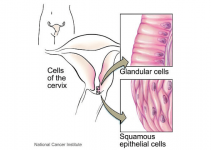 Women are very curious, and sometimes they can be anxious to know when the pregnancy has begun. In most cases, one can know about the possibility of pregnancy based on the timing of intercourse, by monitoring periods, and so on.
Women are very curious, and sometimes they can be anxious to know when the pregnancy has begun. In most cases, one can know about the possibility of pregnancy based on the timing of intercourse, by monitoring periods, and so on.
If you want to find out positive or negative results of pregnancy, a pregnancy test may be particularly helpful. Modern pregnancy tests are quite accurate too.
There is hardly a woman who did not use or hear about the pregnancy test. It seems a rather quick and straightforward solution.
But do you know all the factors affecting pregnancy test accuracy? Do you know how to use it properly to get a reliable result? Are there any things like physical activity or alcohol that can change the test respond?
Here we will answer these questions.
What is a pregnancy test, and how does it work?
Pregnancy tests are designed to tell if your urine contains human chorionic gonadotrophin (HCG) that is well-known as the “pregnancy hormone.”
A sudden increase of this hormone that the fertilized egg has attached to the uterus and you are pregnant [1].
When to do a pregnancy test?
You can take the pregnancy test from the first day your period delays. If you carry out the test earlier, this may not be accurate enough.
The time of day is also important. Morning is usually the best time to take the pregnancy test as your urine will have the highest concentration of HCG at this time [2].
What affects the pregnancy test?
Although many pregnancy tests claim 99 % of accuracy, they are not perfect, and you may get the wrong result.
Several factors can lead to a false-positive or a negative reading of the test [2]. They are the following:
- Evaporation line that is left by the urine after the required time.
- Previous abortion or miscarriage because there may be tissue from the earlier pregnancy in the uterus that may continue producing HCG and thus leading to a false-positive result.
- Certain medications may lead to false pregnancy tests result. They include anti-anxiety drugs, anticonvulsants, diuretics, antihistamines, or methadone.
- Some medical conditions, hormone imbalance, cancer, phantom HCG, ovarian cyst, kidney disease, are few conditions that may cause a rapid increase of HCG even when you are not pregnant.
Does alcohol itself affect a pregnancy test?
Sometimes women ask whether alcohol can affect the test result. Well, it is rapidly absorbed in the body, and as it enters your bloodstream, it quickly moves to the brain.
Alcohol stays in the urine after drinking for a while. The average urine test can detect alcohol between 12 and 48 hours after drinking. More advanced testing can measure alcohol in the urine 80 hours after you drink [3].
Besides, there are some findings that alcohol may affect reproductive function in women affecting hormonal milieu [4].
So, the question is obvious. Does alcohol affect my HCG, and can I take a pregnancy test for 80 hours after drinking?
The studies found that most medications and drugs, including alcohol, do not affect the level of HCG and do not change the results of pregnancy tests [5].
But alcohol has a significant indirect impact on the pregnancy test. If you are interested and want to know these factors, read the following paragraph attentively.
Are there any indirect impacts of alcohol upon pregnancy test result?
Yes, alcohol can affect pregnancy tests indirectly in several ways.
Amount of water you drunk. Drinking alcohol means drinking relatively much mineral or plain water and other soft beverages as some studies show much water at the table helps you mitigate the possibility of hangover and stay hydrated [6].
Besides, many women like washing down alcohol drinks as it tastes better. Also, your body can obtain much liquid if you preferred drinking beer last night.
This causes too much fluid in your body, and it might affect the pregnancy test result as this can dilute the level of HCG in your urine.
“Feeling” pregnant. Taking alcohol makes you feel sick that you can mix with early pregnancy symptoms like mild cramps, fatigue, nausea or vomiting, breast tenderness, feeling sleepy.
Having these symptoms make you take the test immediately. If you feel bad for some hours, you may still doubt the test result.
Violation of procedure. If you are still drunk or intoxicated, you may have difficulties to follow the instructions of the test application. It may be difficult for you to pee on the stick or in the cup.
Also, it will be difficult to calculate the wait time, and it may also lead to an incorrect interpretation of the test result. And you can damage the test itself while opening the box.
Psychological changes and reading the results. Alcohol can be linked to aggression; you could become aggressive, angry, anxious, or depressed.
When you read the results of the tests, and they are not what you wanted, your response may be strange or too emotional.
What to do if I have test results?
Since alcohol does not affect pregnancy test, it does cause fatal diseases for a baby [7]. If the test says you are pregnant, it is better to refuse to drink.
If the result is negative, you should still think about controlling your drinking habit. Especially it is essential when you are planning pregnancy.
A healthy woman has more chances to have a healthy pregnancy and thereby, a healthy baby.
Can you take a pregnancy test while drunk?
Although alcohol does not change the result pf pregnancy test, we still recommend you to wait until you are sober to obtain the correct results.
Being drunk at the time you take the pregnancy test can lead to false results due to your wrong actions or careless handling of the test strip.
Under the influence of alcohol, you can spoil the test, and you will need to do more tests. Also, alcohol stupor may hinder test interpretation.
Even though alcohol does not affect a pregnancy test, it has many other adverse effects. Think of your well-being and do not ruin your health with alcohol, especially if you are planning to get pregnant in the near future.
References
- Pregnancy tests. womenshealth.gov. https://www.womenshealth.gov/a-z-topics/pregnancy-tests. Published December 14, 2016. Accessed September 4, 2019.
- Gnoth C, Johnson S. Strips of Hope: Accuracy of Home Pregnancy Tests and New Developments. Geburtshilfe Frauenheilkd. 2014;74(7):661-669. doi:10.1055/s-0034-1368589.
- Paton A. ABC of alcohol: Alcohol in the body. BMJ. 2005;330(7482):85. doi:10.1136/bmj.330.7482.85.
- Teoh SK, Mendelson JH, Mello NK, Skupny A, Ellingboe J. Alcohol effects on hCG-stimulated gonadal hormones in women. J Pharmacol Exp Ther. 1990;254(2):407-411.
- McChesney R, Wilcox AJ, O’Connor JF, et al. Intact HCG, free HCG beta subunit and HCG beta core fragment: longitudinal patterns in urine during early pregnancy. Hum Reprod Oxf Engl. 2005;20(4):928-935. doi:10.1093/humrep/deh702.
- Roberts KE. Mechanism of Dehydration Following Alcohol Ingestion. Arch Intern Med. 1963;112(2):154-157. doi:10.1001/archinte.1963.03860020052002.
- Bianchi V, Ivaldi A, Raspagni A, Arfini C, Vidali M. Pregnancy and Variations of Carbohydrate-Deficient Transferrin Levels Measured by the Candidate Reference HPLC Method. Alcohol Alcohol. 2011;46(2):123-127. doi:10.1093/alcalc/agq092.




 Dr. Preet Pal SB is a physician (M.D. Medicine) with a specialization in diabetes (Fellowship in diabetes, Royal Liverpool Academy). He has a particular interest in metabolic disorders, considering that they are rising in every corner of the world, more so in India.
Dr. Preet Pal SB is a physician (M.D. Medicine) with a specialization in diabetes (Fellowship in diabetes, Royal Liverpool Academy). He has a particular interest in metabolic disorders, considering that they are rising in every corner of the world, more so in India.